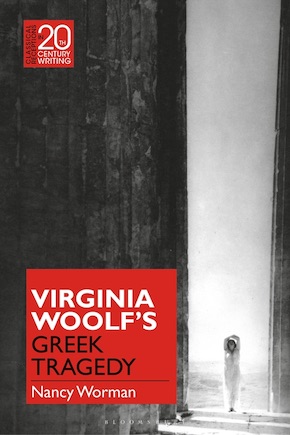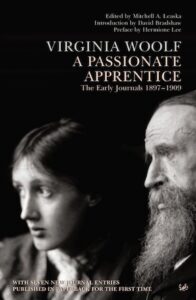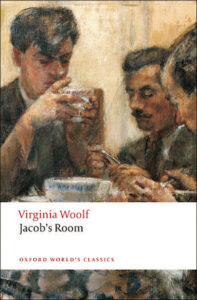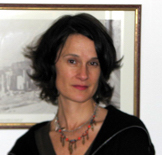Before the beginning of years
by Mika Provata-Carlone
“One of the most illuminating scholars working on Greek tragedy today… A critical triumph.” Classics for All
A chorus from Swinburne’s 1865 play Atalanta in Calydon was once an almost self-standing poetic topos, the expression perhaps of a particular moment in the progression of the human psyche – or of the temporal course of eternity, to fiddle with T.S. Eliot’s famous take on the pastness of the past and its presence.
Before the beginning of years
There came to the making of man
Time, with a gift of tears;
Grief, with a glass that ran;
Pleasure, with pain for leaven;
Summer, with flowers that fell;
Remembrance, fallen from heaven,
And madness risen from hell;
…
Night, the shadow of light,
And life, the shadow of death.
And the high gods took in hand
Fire, and the falling of tears,
And a measure of sliding sand
…
With life before and after
And death beneath and above,
…
That his strength might endure for a span
With travail and heavy sorrow,
The holy spirit of man.
…
In his eyes foreknowledge of death;
He weaves, and is clothed with derision;
Sows, and he shall not reap;
His life is a watch or a vision
Between a sleep and a sleep.
Even truncated, extracted from their vaster organic body of text and performance, these are memorable lines. They are full of a formidable quiet, a staggering silence and an inevitability of truth and reality – above all, a transcendental diagnosis of the human condition that combines ineffable beauty with unspeakable tragedy. With Atalanta in Calydon Swinburne was to attempt his own modernist project avant la lettre, namely the creative embedding within his own contemporary reality and sensibility of the existential discourse and of the structures underpinning the ancient mind and worldview of life. He aimed to write an Aeschylean drama after and beyond Aeschylus, after and beyond antiquity itself. In doing so he pre-empts, even as he may perhaps contradict, the feverish engagement of modernist writers with the Greek and Roman past, a process which has been vigorously scrutinised for its ethics of practice and intentionality, for its critical or proprietary claims on the ‘reception’, ‘rewriting’, ‘reimagining’ and ‘reincarnation’ of all within that ‘past’ that is so immortally dead, or, so mortally, a living reality.
Swinburne was both rejected and covertly revered by many of the modernists, as a poet to be parcelled in seminal fragments and remains, the remainder to be discarded as membra disjecta, as misdirected, expendable forays into art and life. Swinburne’s powers to shock and challenge, his transgressive extravagance and radical nonconformity, his outré to-and-fros between the bathetic and the sublime, helped forge a new Manfredian myth which modernity would be eager to use as its counterfoil, and which constituted a temptation fraught with enigmas. His was a dark authenticity, a riddle-filled new persona for new times, for a new history, perhaps even for a new mankind. In 1921, Eliot was to write that Swinburne “did something that had not been done before, and that what he did will not turn out to be a fraud.” From such a prism Swinburne proclaimed, Walt Whitman-like, the urgent double need to make it new and to recapture the real, a cry in the modernist wilderness few perhaps heard as clearly, as daringly and as enduringly as Virginia Woolf.
Not merely the sentiments, but even the tonality, the crystalline precision and purity, the absolute balance and explosive minimalism of its words are a near-perfect mirror-reflection of Woolf and her work.”
It may be argued that Woolf had ‘spotted’ Swinburne, the way a dancer ‘spots’ a real or imaginary mark ahead before executing a dizzying yet perfect pirouette, well before Eliot’s essay. Swinburne was both a balancing point on the horizon and the point from which she could brilliantly spin away. She had herself written a critical appraisal of Swinburne’s poetry as early as 1918, and scholars have traced in excited detail the contrapuntal influence of his 1866 poem ‘Itylus’ throughout her own fiction. The perhaps more organic stimulus of Atalanta in Calydon, especially in the form of its engagement with Greek tragedy, the tragic mode, the materiality and insubstantiality of the human condition, has not been as explored, even though one might well claim that not merely the sentiments of ‘Before the Beginning of Years’, but even the tonality, the crystalline precision and purity, the absolute balance and explosive minimalism of its words are a near-perfect mirror-reflection of Woolf and her work, what Nancy Worman calls in her new, thrilling and absorbing study, Virginia Woolf’s Greek Tragedy. The double-entendre and the tragic irony are, of course, eminently intended.
Woolf and Greece, Woolf’s Greek, the problematisation around Woolf’s historicising project and her intellectual (and moral) integrity (or not) towards history have taken up countless pages of scholarly rumination. The focus, as the introduction to Worman’s new study emphasises, is here on “a distinctive revision of the classical legacy in Woolf’s oeuvre… [concentrating] on points at which gender and tragedy converge and create an ‘exoticised aesthetic space’ from which Woolf comments on ‘the cosy settings and colonialist conceits of elite (and largely male) British attitudes towards culture and politics.’” It is a resounding theoretical and ideological manifesto, which comes with a very hefty dose of terminological apparatus, yet the hope is that the elan towards dominant academic trends and currents will not put off readers eager to find themselves lost in a truly fascinating and rich analysis of Woolf’s work, the rigorous discipline of her mind, above all her enchantment and irresistible force as a human being. Virginia Woolf’s Greek Tragedy is a scholarly study which bears strongly the insignia of its times; it is, however, much more than a contemporary monograph informed by contemporary issues and new agendas of awareness: Worman is a rather poetic writer, and her thinking possesses both allure and energy.
 As a learner of Greek, Woolf described herself as “contradictious”, which should be taken to mean that she strove to reach beyond the Liddell & Scott definitions of lexicographical entries, and to the very heart of the human meaning that these words carried – a process she recounts with particular poignancy in A Passionate Apprentice. In a similar way, and perhaps equally contradictious, Worman seeks to bring to the foreground Woolf’s care and passion when interacting with anything Greek, in prose or in life, the tangible vitality she saw in words, characters, stories, the physicality of the culture itself, the ‘everyday-object feel’ she experienced in and about Greece, the Greeks, things Greek. Worman places at the heart of her investigation Woolf’s essay ‘On Not Knowing Greek’, the now lost text ‘Magic Greek’, the short story ‘A Dialogue Upon Mount Pentelicus’, Melymrbosia/The Voyage Out, and what she sees as a less anatomised work, Jacob’s Room, in order to illustrate, through a process which is as much textual and cultural analysis, as it is hermeneutical exegesis, Woolf’s “tragic aesthetics”, a rather riveting concept which involves the “terrible stuff” Greek tragedy is made of, its “emphasis on embodiment, enactment and materialities, on bone, muscles, stone, cloth, skin.”
As a learner of Greek, Woolf described herself as “contradictious”, which should be taken to mean that she strove to reach beyond the Liddell & Scott definitions of lexicographical entries, and to the very heart of the human meaning that these words carried – a process she recounts with particular poignancy in A Passionate Apprentice. In a similar way, and perhaps equally contradictious, Worman seeks to bring to the foreground Woolf’s care and passion when interacting with anything Greek, in prose or in life, the tangible vitality she saw in words, characters, stories, the physicality of the culture itself, the ‘everyday-object feel’ she experienced in and about Greece, the Greeks, things Greek. Worman places at the heart of her investigation Woolf’s essay ‘On Not Knowing Greek’, the now lost text ‘Magic Greek’, the short story ‘A Dialogue Upon Mount Pentelicus’, Melymrbosia/The Voyage Out, and what she sees as a less anatomised work, Jacob’s Room, in order to illustrate, through a process which is as much textual and cultural analysis, as it is hermeneutical exegesis, Woolf’s “tragic aesthetics”, a rather riveting concept which involves the “terrible stuff” Greek tragedy is made of, its “emphasis on embodiment, enactment and materialities, on bone, muscles, stone, cloth, skin.”
The key to Worman’s lyrical readings of Woolf’s essays, diaries and fiction is ‘this mysterious materialising’, ‘this edging of the ineffable’, which allows for a flesh-and-blood reality of the Greek characters, of Greek lives.”
It is a refreshingly far cry from visions that focus on Woolf’s ethereality, mental fragility (if such there was), detachment or even acorporeality. Woolf, Worman tells us, “casts tragedy in… visceral terms, capturing something essential, about how tragedies orchestrate embodiment at its material edges, that is, where surfaces make contact, hands touch, or bodies and things fall together… Tragedy in particular provides Woolf with a way into this mimesis of the barely discernible or unseen, which works through metaphor and metonymy, limning the character onstage with the divine, the horrifying, the arcane.” The key to Worman’s lyrical readings of Woolf’s essays, diaries and fiction is “this mysterious materialising”, “this edging of the ineffable”, which allows for a flesh-and-blood reality of the Greek characters, of Greek lives and the Greek way of life, as well as for transcendence, for a universal symbology and symbiosis.
Worman is keen to reinstate Woolf as a writer with astute and resolute political awareness, and against traditional scholarship which regards Woolf as, at best, disconnected from politics. She is also herself determined to showcase the female figure in the carpet, the “striking continuity” between Greece and the Greek language, which Woolf intertwines seamlessly with her English prose whenever she references an ancient text, and “the figuring of the female as outsider and colonised, in relation to which ‘Greece’ both shares this status and stands in opposition to it.” Otherness, inevitably, raises questions of perspective, it challenges the possibility of a deeper mutual understanding, it flags what today is classed as nativism, primitivism, orientalism or colonialism and cultural appropriation; yet it can also invite the remembrance of what Aristotle defined, with a perhaps broader human and philosophical perspective, as the essentially tragic process of methexis, the ability to consider nothing human as alien to one, the commitment to seek to understand everything human as one’s own empathic experience and duty. Worman treads subtly yet fiercely on this fine line between essentially politicised dialectics, and a reading of Woolf’s work which exudes precisely that quality of common humanity, of common readership, of chorus-like partaking in the drama that is sometimes staged as being seemingly other, so that it may be even more intimately recognised as one’s very own.
Virginia Woolf’s Greek Tragedy is both a passionate companion piece to Woolf’s writings, and a formidable study of Greek tragedy and its radical validity. Worman is an inspiring classicist, and a remarkable close reader of modern literature. From the feminist discourse of Froma Zeitlin or Jane Harrison, to Nicole Loraux or Helen Foley, but also Stathis Gourgouris’ Ohio State deconstructionist argumentation and Pierre Bourdieu’s habitus principle, Worman proceeds further, keen to sketch out a more inclusive, discursive and adaptable horizon of interpretation and engagement. In fact, perhaps the term ‘encounter’ would be more apt to describe her experience of Woolf’s corpus and biography, from within a dynamic and temptingly articulate theoretical framework. She maintains a tense, yet fine equipoise between an ideologically informed and structured reading practice, and a reflected praxis of reading which celebrates the wondrousness Worman clearly feels towards Woolf as a writer, as a female voice, as a living woman and thinker of her time – or perhaps beyond and against time.
Each of these now dominant categories merit precisely the kind of Aristotelian methexis that Greek tragedy necessitates and provides, so that they may be true catalysts of understanding, communication, community.”
There are some moments, however, where the balancing act feels strained rather than natural. Primarily, this is due to a compulsion to make Virginia Woolf’s Greek Tragedy ‘relevant’ to the current socio-academic leanings, whether this is the debate concerning a decolonised curriculum, colonialising appropriation through writing, “elitist myopia”, ethnic and/or cultural “racialised bias”, nativism/primitivism, the “embodiment… of outcast figures”, or “male superiority and ascendancy”. To her credit, Worman shows how each of these now dominant categories merit precisely the kind of Aristotelian methexis that Greek tragedy necessitates and provides, so that they may be true catalysts of understanding, communication, community. She acknowledges throughout that formulaic readings can be reductive and oblivious to critical nuances, to the layers of human difference, or to the inherent hermeneutical dynamics. The irony, of course, is that even Worman’s deconstruction of “primitive slants”, and of colonialist or plainly racist undercurrents remains the hermeneutical gesture of a non-Greek, ancient or modern, an act of meaning-determination or of assignment of insignificance which is, inevitably, externally imposed and applied. This does not render her critical perspective or even her criticisms illegitimate or invalid; but it does put under question the entire theoretical edifice of a neo-purist system of self-proclaimed objective analysis. We cannot pretend to know absolutely, or to be bias-free; yet we cannot also be human unless we try to partake in another’s existential experience, turn of mind, unless we co-sense trauma, or seek to understand the alterities of historical perspective.
 Another principle of relative uncertainty is the notion of “not knowing”, which would have constituted a rather riveting prism, had Worman created the link with Socrates’ own claim of knowing nothing. The whole of Greek culture revolves around the notion of “not knowing”, the acknowledgement of the limitations of the human intellect as well as of life. The principle of hubris, so central to Greek tragedy, arises from claims to absolute knowledge, male or female, from pretentions to wield the total control of the “measure of things”. Woolf was acutely aware of this, whether in Mrs Dalloway or Jacob’s Room, and she uses, like Socrates, both the power of irony, as well as the sympathy and mordant lucidity of a maieutic narrative process in order to expose the various iterations of Protagoras with which she populates her essays and stories for the tragic failures that they are, including issues of appropriation and ‘othering’. In parallel with this is individual human agency, for all the circumstances of human mortality. Woolf’s exceptionally incisive human portraits, whose extraordinary complexity is the result of the most perfect simplicity, are founded on Sophocles’ word “man” (or human being), as spoken in Antigone by the chorus in what is known as the ‘Ode to Man’, which was to be picked up later by Shakespeare’s Hamlet. It is man, male or female, who is the most wondrous of species, as well as the one endowed with the greatest potential for destructive agency and blindness. The whole point of Antigone is this value of agency, self-perception, individual understanding of right and wrong, good and evil, human and superhuman. Worman tweaks the Greek original so she can translate it more neutrally as to anthropinon, the human, which inserts the notion of fatality rather than fate, as well as the suggestion of an awkward pathologising of humankind.
Another principle of relative uncertainty is the notion of “not knowing”, which would have constituted a rather riveting prism, had Worman created the link with Socrates’ own claim of knowing nothing. The whole of Greek culture revolves around the notion of “not knowing”, the acknowledgement of the limitations of the human intellect as well as of life. The principle of hubris, so central to Greek tragedy, arises from claims to absolute knowledge, male or female, from pretentions to wield the total control of the “measure of things”. Woolf was acutely aware of this, whether in Mrs Dalloway or Jacob’s Room, and she uses, like Socrates, both the power of irony, as well as the sympathy and mordant lucidity of a maieutic narrative process in order to expose the various iterations of Protagoras with which she populates her essays and stories for the tragic failures that they are, including issues of appropriation and ‘othering’. In parallel with this is individual human agency, for all the circumstances of human mortality. Woolf’s exceptionally incisive human portraits, whose extraordinary complexity is the result of the most perfect simplicity, are founded on Sophocles’ word “man” (or human being), as spoken in Antigone by the chorus in what is known as the ‘Ode to Man’, which was to be picked up later by Shakespeare’s Hamlet. It is man, male or female, who is the most wondrous of species, as well as the one endowed with the greatest potential for destructive agency and blindness. The whole point of Antigone is this value of agency, self-perception, individual understanding of right and wrong, good and evil, human and superhuman. Worman tweaks the Greek original so she can translate it more neutrally as to anthropinon, the human, which inserts the notion of fatality rather than fate, as well as the suggestion of an awkward pathologising of humankind.
Other insecure premises are Worman’s claim that for Woolf the Platonic dialogue and Greek tragedy are diametrical opposites, even either/or antitheses, prescriptively male and female respectively, exclusively gendered discourses and realms. This is not so evident in Woolf herself, who moves seamlessly and organically from the Platonic Symposium to “a fragment by Sappho” to “some tremendous metaphor in the Agamemnon” in order to emphasise her own central thesis, namely the incarnational relationship between conceptual word and lived life: “Does not the whole of Greece heap itself behind every line of its literature?” For Woolf, the vital question is that of essence and appearance, of reality and the ideal, of the life in and of books, in and of the past and the lived experience – questions that are at the heart of Jacob’s Room.
She has an extraordinary eye for detail, a superb sensibility for fleshing out what might be lost in the pace of narrative praxis, a riveting gift for creating connections between texts, concepts, moments in time.”
Woolf’s treatment of the Odyssey is also at odds with Worman’s rather blanket survey of it: this is perhaps Woolf at her most mystical and poetic in her analysis of the Greeks, at her most philosophical and vulnerably human. It is not the Iliad’s attraction for Giraudoux and others, but the simplicity of Odysseus’ Ithaca, the rituals of life, life’s tragedy, the Greeks’ endurance in the face of loss and adversity, across circumstances and time, that constitute for Woolf the life lesson she yearns for, the one she strove so hard to live by. In contrast to Worman’s deeply emotive, inflected and sharp intertextual readings of Woolf’s novels and a number of Greek tragedies, her affirmations on the Homeric epics, both in themselves and in the context of Woolf’s perception of them, in terms of their tradition of reception, can give rise to several question marks and to a sense of resistance as to their many layers and their fundamentally philosophical and ethical paradigmatic quality. She notes Woolf’s recognition of the tragic rather than the glorifying intentionality of epics, yet misses out on the opportunity to delve more deeply. The Iliad is, if anything, a singularly beautiful, arrestingly moving dirge and lament, the Odyssey a model for and a prefiguration of the human condition of “not knowing”, the inalienable ‘tragic irony’ that is at the heart of human life. It is also in many ways the prototype of the Oresteia, a categorical discourse on the non-ethics of revenge, on the sublime ‘Platonic’ choice of the simple life.
The theoretical prisms Worman feels compelled to adhere to can often obstruct and distract from the human essence in both the Greek works she so thrillingly places centre stage, and in Woolf’s own works, her engagement with the Greeks, as in the assertion that Woolf “shapes Greece and Greek art and literature in a manner that both mocks and participates in the colonialist appropriation.” This is to miss the distinction between narrative (or even readerly) perspective, and a character’s particular portrayal – to erase the critical distance between what is plot and what is meta-textual meaning, or even what is Woolf’s version of tragic irony. There are throughout some broad hermeneutical slides rather than clean transitions between arguments, a proclivity towards predicative categories.
Yet for all one’s quibbles and objections, one cannot help truly relishing the process of reading and thinking with Worman, even when one feels inclined to propose alternative or even opposite perspectives and intentions. She has an extraordinary eye for detail, a superb sensibility for fleshing out what might be lost in the pace of narrative praxis and reading action, a riveting gift for creating connections between texts, concepts, moments in time and in the history of stories. Virginia Woolf’s Greek Tragedy is written to feel like a live delivery, an in vivo presentation at a thriving, throbbing, distinctly vocal convention. It has remarkable intimacy and directness, a particularly resonant voice which will not allow for readerly absence erasure, or anonymity. Woolf and tragedy for Worman are clearly personal issues, as is her engagement with her reader, or her textualised audience.
 Nancy Worman is Ann Whitney Olin Professor of Classics and Comparative Literature at Barnard College and Columbia University, New York. She is the author of articles and books on style, performance and the body in Greek literature and culture, including Landscape and the Spaces of Metaphor in Ancient Literary Theory and Criticism (Cambridge University Press, 2015). Virginia Woolf’s Greek Tragedy is published in paperback and eBook by Bloomsbury Academic.
Nancy Worman is Ann Whitney Olin Professor of Classics and Comparative Literature at Barnard College and Columbia University, New York. She is the author of articles and books on style, performance and the body in Greek literature and culture, including Landscape and the Spaces of Metaphor in Ancient Literary Theory and Criticism (Cambridge University Press, 2015). Virginia Woolf’s Greek Tragedy is published in paperback and eBook by Bloomsbury Academic.
Read more
classics.columbia.edu/nancy-worman
@BloomsburyAcad
Mika Provata-Carlone is an independent scholar, translator, editor and illustrator, and a contributing editor to Bookanista. She has a doctorate from Princeton University and lives and works in London.
bookanista.com/author/mika/

